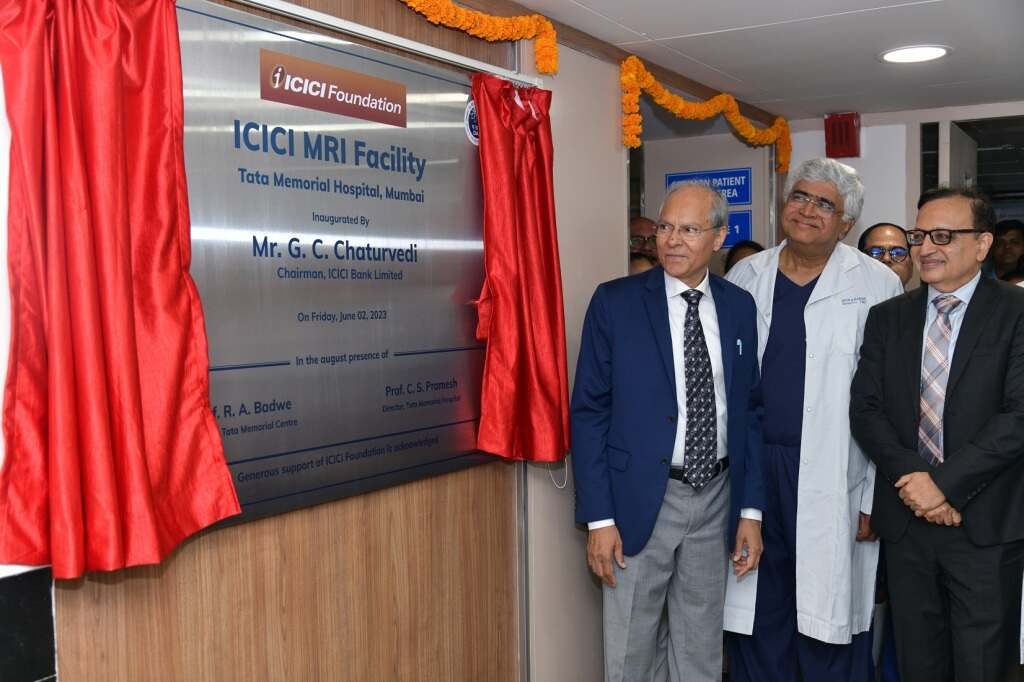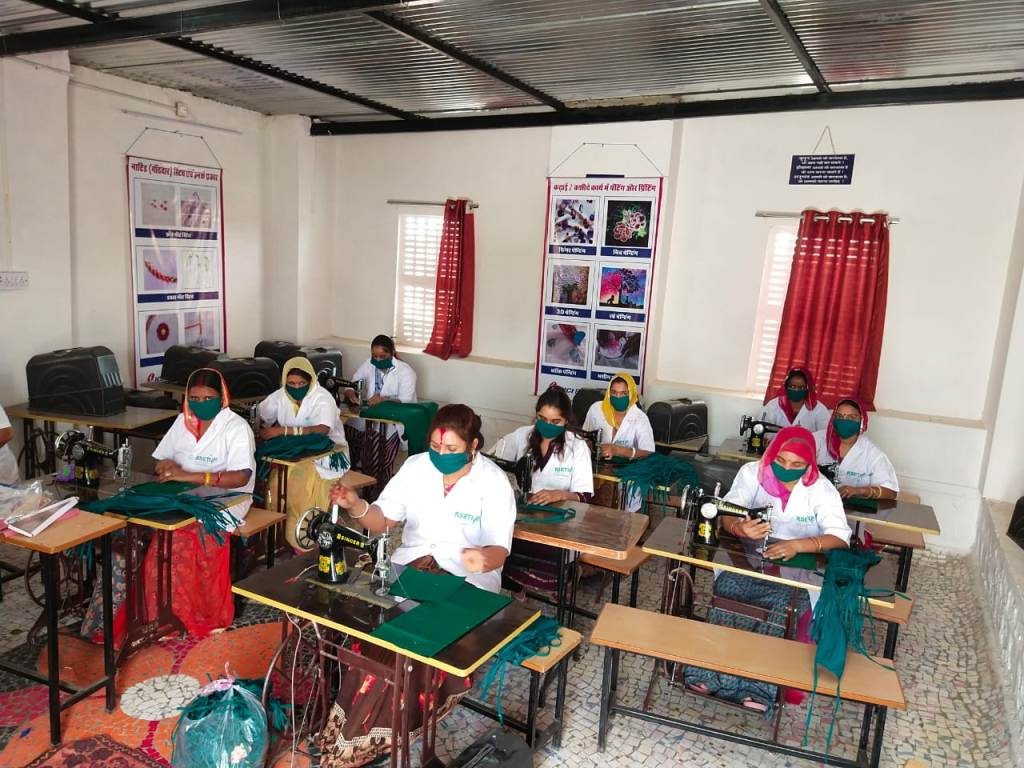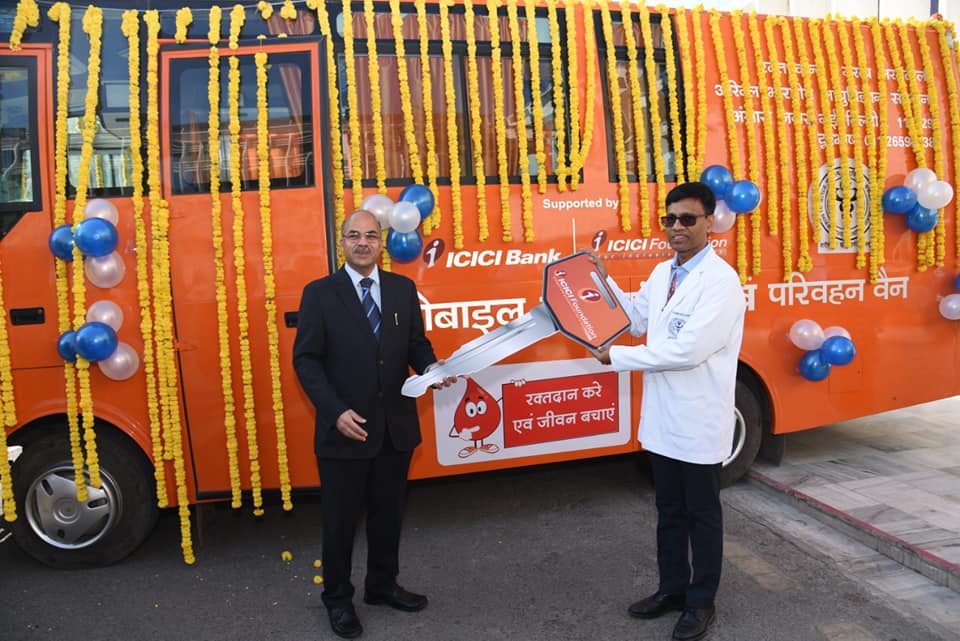ICICI was formed in 1955 at the initiative of the World Bank, the Government of India and representatives of Indian industry. Until the late 1980s, ICICI primarily focused its activities on project finance, providing long-term funds to a variety of industrial projects. With the liberalization of the financial sector in India in the 1990s, ICICI transformed its business to a diversified financial services provider. ICICI Bank was incorporated in 1994 as a part of the ICICI group. In 1999, ICICI became the first Indian company and the first bank or financial institution from non-Japan Asia to be listed on the New York Stock Exchange.
In January this year, the Reserve Bank of India (RBI) announced that State Bank of India (SBI), ICICI Bank, and HDFC Bank continue to remain India’s Domestic Systemically Important Banks (D-SIBs). This means, these banks are ‘too-big-to-fail’ i.e, their failure can negatively impact our entire financial system leading to a situation of instability. Playing a crucial role in India’s financial stability, these banks will receive support from the government if there is any situation of financial crisis.
Being one of the top players in India’s banking industry and crucial to our financial stability, what is ICICI Bank doing to achieve its goal of Corporate Social Responsibility? What is the role played by the Bank for education, skill development, youth empowerment, women empowerment, supporting farmers, rural development, and other sectors which need attention?
Today, The CSR Journal takes a look at the top CSR projects of ICICI Bank with a focus on FY 2022-23 and year 2023.
CSR of ICIC Bank
In the fiscal 2023, ICICI Bank has spent Rs 463 crore in Corporate Social Responsibility (CSR) activities.
“The Bank strongly believes in creating a positive impact on society, through its business as well as through its corporate social responsibility (CSR) activities. The reach of efforts made through the ICICI Foundation for Inclusive Growth, touching every state and union territory of India, is remarkable. The efforts are in areas critical to the country’s development, including healthcare, environment & biodiversity, livelihoods and societal development. The Bank is committed to continuing these initiatives that have so far impacted about 10.9 million lives,” ICICI Bank Chairman Girish Chandra Chaturvedi stated in the Bank’s Annual Report for 2022-23.
During FY 2023, major focus areas for CSR were healthcare, environment, societal development and supporting sustainable livelihoods. The Bank’s philanthropic arm, the ICICI Foundation has been the primary implementing partner and for undertaking desired socio-economic interventions.
ICICI Foundation
ICICI Bank undertakes CSR activities through its CSR arm ICICI Foundation for Inclusive Growth (ICICI Foundation), which was founded by the ICICI Group in early 2008. ICICI Foundation has been working towards building capabilities and developing innovative models in areas like primary healthcare, elementary education, skill development and sustainable livelihood and financial inclusion. It operates through a variety of models including public private partnership, working with grassroots organisations and direct intervention models.
Four major focus areas of ICICI Foundation include:
1. Affordable and Accessible Healthcare: This includes activities like providing ambulances, healthcare equipment and supporting treatment to underprivileged individuals.
2. Sustainable Environment and Ecology: This includes activities like tree plantation, sustainable forests, watershed management, rainwater harvesting and promoting renewable energy capacity.
3. Inclusive Approach for Societal Development: This includes activities like promoting education, sports, entrepreneurship, support to armed forces, disaster relief and projects undertaken in Aspirational Districts.
4. Income growth of the underprivileged: This includes activities like focusing on skill development in urban and rural areas, value chain development, climate smart agriculture and Rural Self-Employment Training Institutes.
Through the above activities, ICICI Foundation claims to have impacted the lives of about 10.9 million people across the country. Projects in areas like watershed management, value chain enhancement, afforestation, sanitation, skilling, responsible waste management and others have been taken up in 38 districts out of the 112 districts identified under the Government’s Aspirational Districts Programme.
1. Affordable and Accessible Healthcare
Through the ICICI Foundation, the Bank in the said FY has taken measures like providing ambulances, blood donation and blood transport vehicles, dialysis machines and other health equipment to government and charitable institutions. Support has also been provided to underprivileged individuals for cancer care, bone marrow transplant, eye checkups and organ transplants.
Contribution of Rs 1,200 crore to Tata Memorial Centre
In June, 2023, ICICI Bank announced a commitment to contribute Rs 1,200 crore towards Tata Memorial Centre, a premier institution that runs cancer treatment and research centres across the country. The bank donates the money from its CSR funds to set up three new buildings spanning over a combined area of 7.5 lakh square feet and equip them with state-of-the-art machines at Tata Memorial Centre’s centres at Navi Mumbai in Maharashtra, Mullanpur in Punjab and Visakhapatnam in Andhra Pradesh. ICICI Foundation will implement the initiative, which is likely to be completed by 2027.

ICICI Foundation has committed to setting up an ‘ICICI Radiation Oncology Block’ at the hospital’s Advanced Centre for Treatment, Research & Education in Cancer (ACTREC) at Navi Mumbai, Maharashtra. This block will be equipped with state-of-the-art radiology facilities including CT scanner and MRT, new facility for outdoor patients, laboratories and radiotherapy facility for in-patients.
The Foundation will also set up two ‘ICICI Paediatric and Haematological Oncology Block’ at Tata Medical Centre’s Homi Bhabha Cancer Hospital and Research Centre at Mullanpur in Punjab and Visakhapatnam in Andhra Pradesh. These centres will provide an array of advanced equipment and therapies, which are required to treat paediatric and haematological cancer.
2. Sustainable Environment and Ecology
Environmental and ecological protection is a critical developmental need for India with several regions facing challenges of water shortage, decline in soil quality and crop productivity. There is also a need to increase forest cover and create carbon sinks. ICICI Foundation in collaboration with the local authorities and administration has undertaken projects relating to water conservation and rejuvenating water bodies.
In fiscal 2023, the water body rejuvenation implemented projects had the potential for harvesting 8.4 billion litres per annum of water, and rainwater harvesting projects undertaken at 3,500 rural government schools had the potential to harvest 740 million litres of water, the bank claims in its Annual Report.
3. Financial Inclusion and Rural Development Initiatives
With an aim to support rural economy, the Bank has taken initiatives to address their needs. The Self-Help Groups (SHGs) programme is an initiative that has contributed to entrepreneurship among women in the rural areas. The bank provides facilities like zero-balance savings account and term loans for meeting the business requirements of the women of these SHGs. The bank is also organising financial literacy camps and has set up dedicated service desks at select business centres to guide SHGs on banking procedures. The bank has tied up with about 546 Non-Government Organisations called Self-Help Promoting Institutions.
4. Income growth of the underprivileged
ICICI Academy for skills
In 2013, ICICI Foundation launched a national-level initiative namely “ICICI Academy for Skills” to meet the demand for skilled labour and create sustainable livelihood opportunities for the less privileged youth. The Academy offers industry-relevant and job-oriented vocational training in 13 technical and 4 office skill courses. There are currently 26 Academies spread across 20 States/Union Territories, which provide free of cost training that empowers the youth to build a skilled India.
This is the flagship CSR initiative of ICICI Bank that tries to fill the gaps in urban settings by finding sustainable and dignified employment for youngsters. The very first Academy came about the year 2013 in the city of Jaipur, Rajasthan. The Academy also offers job placement for trainees after the course is completed. NSDC (National Skills Development Corporation) is the training partner.
ICICI Rural Self Employment Training Institute (RSETI)
Rural Self Employment Training Institutes (RSETIs) are set up by banks to provide vocational training to rural youth from marginalised communities as part of a national programme initiated by the Ministry of Rural Development, Government of India. On behalf of ICICI Bank, ICICI Foundation manages two residential ICICI RSETIs in Rajasthan at Udaipur and Jodhpur, and their 19 satellite centres in these two districts, since March 2011.
ICICI RSETIs at Udaipur and Jodhpur have been recognised as top performing RSETIs in India for eight years in a row, by the MORD and the National Centre for Excellence of RSETIs. ICICI RSETI Jodhpur also has the distinction of being recognised as India’s 1st IGBC rated ‘Net Zero Energy- Platinum’ building.
With a focus on providing vocational training to rural youth from marginalised communities, the ICICI RSETIs have been offering skill training in 23 trades which have local demand including electrician and home appliance repair, plumbing and sanitary works, masonry, carpentry, two-wheeler servicing & repair, handicrafts manufacturing, beauty parlour management, ladies tailoring, dairy farming and vermicomposting, office administration etc.

ICICI Foundation Rural Livelihood Programme
Launched officially in 2017, this ICICI Bank CSR initiative involves skill building of villagers, market linkages with local and national markets and sustainable livelihood generation. The Rural Livelihood Programme has been nurturing local value chains in some village clusters.
ICICI Foundation Rural Livelihood initiative works towards driving sustainable livelihood focusing on locally relevant trainings, providing market linkages thereby ensuring sustainable livelihood for the lesser privileged. With sustainable growth being the key driver for this programme, the interventions revolve around four strategic pillars of shortage, surplus, inclusion and environment.
The courses have an ‘Entrepreneurship Development’ module built-in that instils confidence in the qualities essential in running your own venture – taking risks and setting goals. There is a long handholding phase after the course is completed. This allows the bank to monitor the growth of rural entrepreneurs.


